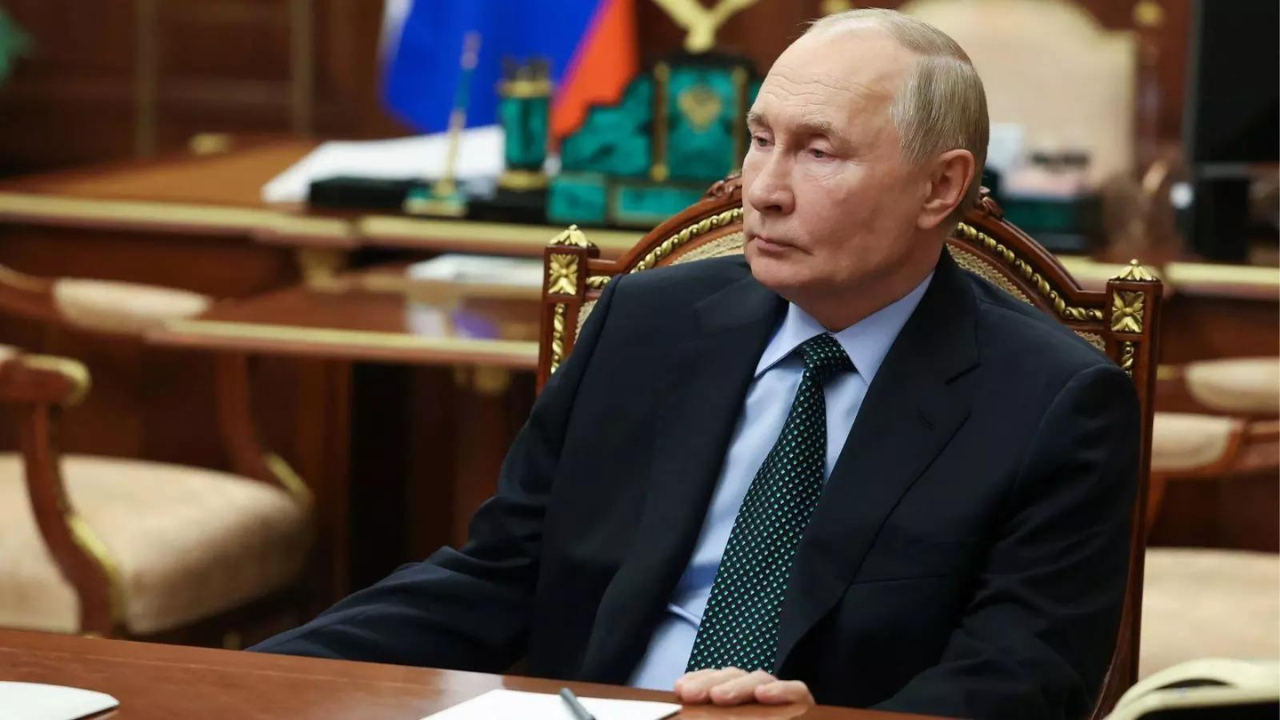ARTICLE AD BOX
Russian anti-war presidential candidate Boris Nadezhdin on Wednesday delivered 105,000 signatures in his support to the Central Election Commission (CEC), technically enough to challenge incumbent Vladimir Putin in Russia's March election.
Nobody expects Nadezhdin, 60, to win. The victory of 71-year-old Putin, who has been in power as either president or prime minister since the end of 1999 and controls all the state's levers, is widely seen as a foregone conclusion.
But Nadezhdin has surprised some analysts with his trenchant criticism of what the Kremlin calls its "special military operation" in Ukraine, something he calls "a fatal mistake" and says he would try to end through negotiations.
Kremlin critics say Nadezhdin, who has been a regular guest on state TV programmes discussing the war, would not have been allowed to get this far in such a tightly controlled political system without the authorities' blessing, something he denies.
Still, his outspoken statements about Russia's war have stoked speculation that he may have crossed an unspoken red line and will be barred from running on a technicality or forced to drop out.
Speaking on Wednesday, Nadezhdin signalled he was determined to run.
"It will be very difficult for the CEC and the authorities to say: 'I didn't notice the elephant in the room!'", he said, referring to his success in gathering the necessary signatures which he delivered to the CEC's Moscow headquarters in cardboard boxes.
Election officials will check the authenticity of the signatures submitted by Nadezhdin and other would-be candidates, several of whom have withdrawn from the race in recent days.
Nina Khrushcheva, professor of international affairs at The New School in New York, said in an interview with Reuters that Nadezhdin's campaign was becoming a problem for Putin.
She said that by signing up for him, representatives of what she called a "silent majority" of Russians who wanted the war to end were making their voices heard - even though this could be risky for them.
The Kremlin may have miscalculated, Khrushcheva said, if it was counting on Nadezhdin to just act out the role of an opposition candidate in order to make the election look like a proper contest.
"One of the ways of the Kremlin when you're in power for 25 years is that you actually don't think you can lose... (Putin) thinks that he can control everything and all these things are kind of little problems that can be overcome and let's make it more complicated," she said.
"It's like, he's a KGB man so let's have a chess game and see how it plays out."
She said it is to be seen if the electoral commission - which in the past has disqualified candidates after ruling some supporters' signatures as invalid - will find a pretext to stop Nadezhdin getting on the ballot. It now has 10 days to decide whether to register him or not.
"Fatal Error"
In a speech at the CEC, Nadezhdin stressed that the signatures had all been collected inside Russia - in line with the rules - and did not include those gathered abroad. He also said that his campaign was entirely funded by what he said were tens of thousands of donations from "ordinary people".
"Putin committed a fatal error by starting the special military operation (in Ukraine)," Nadezhdin said.
As a candidate nominated by a political party, Nadezhdin needed to gather 100,000 signatures across at least 40 regions in order to stand in the March 15-17 election.
Putin, who has chosen to run as an independent rather than as the candidate of the ruling United Russia party, needs 300,000 signatures. He has already collected over 3.5 million, according to his supporters.
(Except for the headline, this story has not been edited by NDTV staff and is published from a syndicated feed.)
.png)
 9 months ago
3
9 months ago
3








 English (US)
English (US)